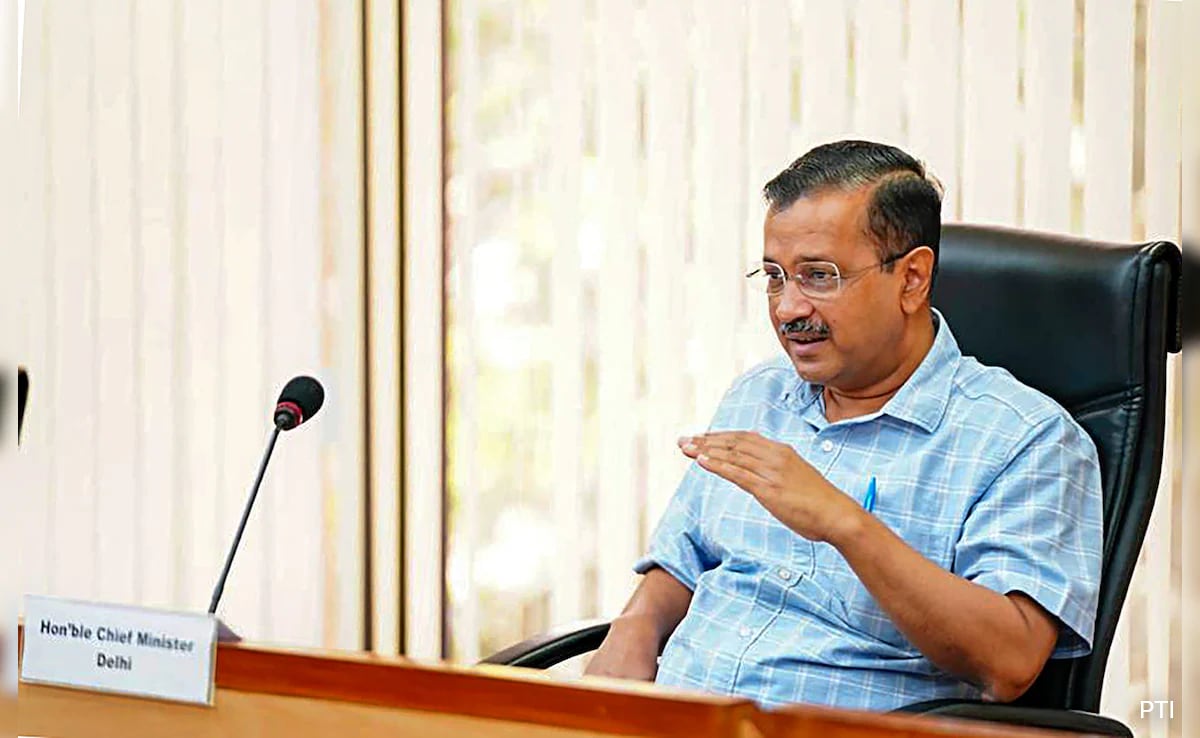I don’t remember the last time I heard such a bizarre statement from a political party. I am referring to news that the Aam Aadmi Party (AAP) will request the court to permit Chief Minister Arvind Kejriwal to call cabinet meetings in jail if he is arrested by the Enforcement Directorate. To expect that any court will allow this is ridiculous, surreal, and beyond comprehension. It not only defies logic but also suggests the party does not belong on Planet Earth.
Apparently, AAP has no understanding of the Indian judicial system and the Constitution. I can understand there is nothing in the Constitution that dictates that a Chief Minister must resign if arrested. The Constitution, however, is not only a written document; it is also convention. The convention is that when a chief minister is arrested, they have no option but to resign and step aside for another person. That is what Lalu Yadav, J Jayalalithaa and BS Yediyurappa did. If Kejriwal thinks he is above the Constitution and need not resign, he is either very poorly advised or deluded.
AAP, which is also planning a referendum on its idea, argues that Kejriwal was elected by the people and voted to be chief minister, and therefore should be allowed to run the government from jail. By this logic, no chief minister, no minister, and no MP or MLA will ever have to resign if arrested, since they all are elected, except those who are members of Rajya Sabha or the legislative council.
Even to become chief minister, one has to first be elected MLA. In the Indian Constitution, there is no provision to directly elect a chief minister. India adopted a parliamentary system, unlike the American presidential system in which the President is directly elected by the people. Even in the American system, Richard Nixon had to resign in the Watergate scandal. He was later pardoned by his successor, President Gerald Ford, on 8 September 1974 to avoid the embarrassment of a former president going to jail.
Lalu Yadav had to resign and installed his wife Rabri Devi as Chief Minister when he faced imprisonment in the fodder scam. Lalu Yadav was left with no option but to resign on 25 July 1997 when the CBI put out a warrant for his arrest. The fodder scam was his undoing and he was convicted in the same case. Similarly, AIADMK supremo Jayalalithaa had to go to jail for four years in a disproportionate assets case. She was Chief Minister then but relinquished the post, getting her trusted lieutenant O Panneerselvam to stand in. She was acquitted of corruption charges by the Karnataka High Court in May 2015, after which she returned as Chief Minister. BS Yediyurappa, the BJP’s strongman in Karnataka, had to make way for Sadananda Gowda in 2011 when he was convicted by a local court in a corruption case. Like Jayalalithaa, he, too, was acquitted by the higher court in 2016.
It is true that Kejriwal, until the time of writing, has neither been named as a witness nor as an accused in the Delhi liquor scam. The Enforcement Directorate did summon him for questioning on November 2 but the AAP chief pulled a no-show – instead, he called the ED’s summons illegal.
The summons fuelled a debate on who would replace him if he were to be arrested, because he couldn’t continue as chief minister. Many names floated in the media. AAP called a meeting of its MLAs and the press was later told that everyone had requested Kejriwal to hold on even if he was arrested, as he was chosen by the people.
The ED has not revealed its cards. Nobody knows what it is planning. Will it send him another summons? If so, when? What seems certain is that the agency has made up its mind to interrogate him in the liquor case. The BJP has been declaring vociferously that he is the lynchpin of the scam and that he should be arrested.
It was widely expected that his deputy Manish Sisodia, jailed since March, would secure bail from the Supreme Court, which had observed during a hearing that there seemed to be no evidence against him. The top court, however, rejected Sisodia’s bail request, in a hint that there might be tentative evidence against him in the money trail of Rs 338 crore. This was a massive setback for AAP, and the ED was so encouraged by the court verdict that it sent a summon to Kejriwal the same day. This fed into speculation that the probe agency now believes it has a strong case against the AAP government, and feels it is the right time to strike, starting at the top. Sooner or later, Kejriwal must face the ED. Whether he is arrested is a different matter but the party should have a Plan B if he is. If Plan B is for Kejriwal to run his government from jail then it is a sure-fire recipe for disaster. No court will indulge this.
I don’t know if Kejriwal is testing the waters, if he is trying to whip up public sympathy or acting on some hidden agenda. What is not in doubt is his penchant for tamasha.
Kejriwal is an unorthodox politician who does not believe in the tradition when it comes tonetagiri. He believes in breaking the rules and has mostly succeeded. In the beginning, the idealist in him inspired him to be innovative, to think out of the box to solve problems. Gradually, he started subscribing to the belief system of politics as event management – the bigger the event, the better the chances of success. It seems he is planning to convert his possible arrest into a big public spectacle, packaging himself as a messiah paying the price for fighting corruption. It is no coincidence that while campaigning in Chhattisgarh, Kejriwal declared that “Modi can arrest my body but not my thought process”.
The flip side is that he can lose his government. If he refuses to resign, then the Lieutenant Governor will be forced to send a message to the Speaker to convene an assembly session and choose a new leader. If this does not happen, the Lieutenant Governor will have no option but to send a report to the Union Home Ministry on a “constitutional breakdown” in Delhi and recommend that the elected government be sacked until the assembly elects a new leader. Or the Centre can dissolve the assembly straightaway.
The AAP government is functioning in a hostile ecosystem. It has been in trouble since Vinay Kumar Saxena became Lieutenant Governor. The central government has not missed any opportunity to make AAP miserable. But Kejriwal’s theatrics will be suicidal and harm his own party instead of drawing public sympathy. AAP could lose its government if the Centre were to invoke Article 356, used for imposing direct federal rule. Is AAP ready to pay the price?
Kejriwal would be better advised to face the Enforcement Directorate with dignity, and convey to the masses that he has been victimised like other opposition political parties and their leaders. Instead of resorting to a tamasha, he should facilitate the process of electing a new leader within the party to lead the Delhi government if he is arrested. If, however, he is afraid of a metaphorical Brutus, it’s a different matter. Either way he does not have many choices.
Kejriwal should not forget that he is up against Narendra Modi, and not Manmohan Singh. The Congress let him create a movement that is remembered in history as the Anna Movement. The movement that led to the rise of Kejriwal and the demise of the Congress in national politics. India has changed since 2014 and Kejriwal must not lose sight of that fact.
(Ashutosh is author of ‘Hindu Rashtra’ and Editor, satyahindi.com.)
Disclaimer: These are the personal opinions of the author.




